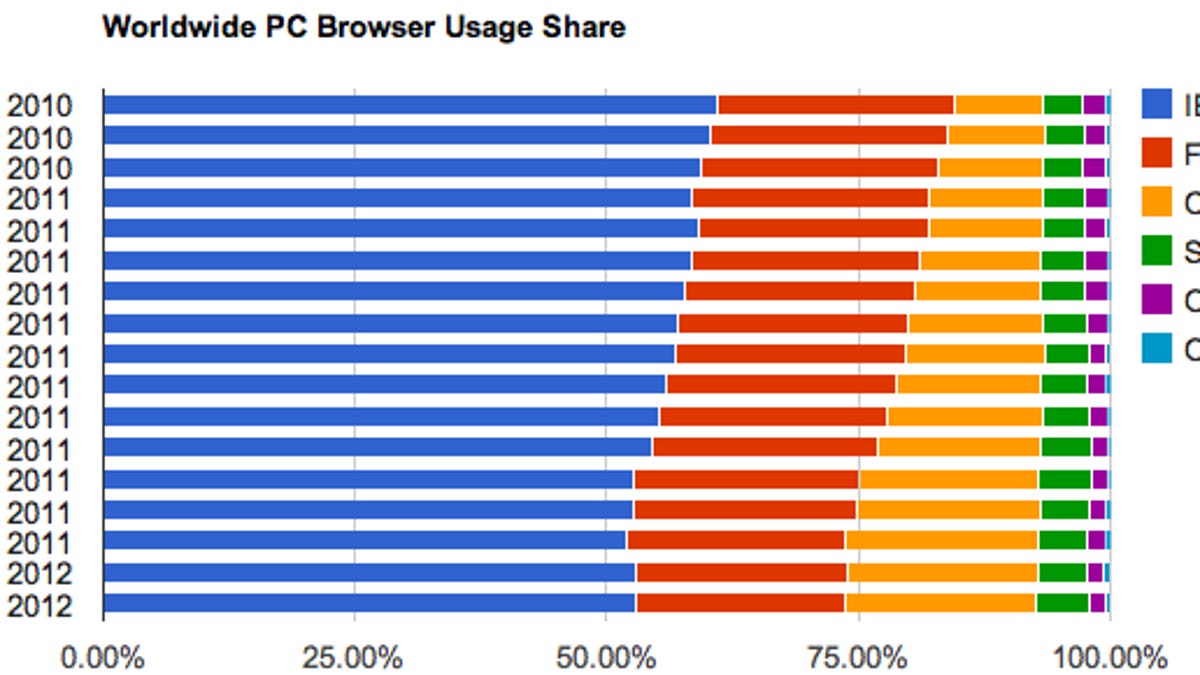IE holds rival browsers at bay
In February's usage reports, there was little change in the top three browsers' relative usage -- something of a victory for Microsoft. Also: a new IE10 preview.

For Microsoft's Internet Explorer team, stasis is bliss.
In February's worldwide usage statistics, IE largely held at bay its top challengers, Mozilla's Firefox and Google's Chrome, according to Net Applications' latest measurements. IE has done so for a few months now, a big improvement for Microsoft compared to years of losing share.
IE dipped from 53.0 percent of global usage in January to 52.8 percent in February among desktop browsers; Firefox and Chrome stayed level at 20.9 percent and 18.9 percent, respectively. Safari popped up a notch from 4.9 percent to 5.2 percent, and Opera was unchanged at 1.7 percent.
Browsers have become a fiercely competitive technology as companies seek to attract users to what has become a foundation for many applications they use daily. Underlying operating systems still matter -- especially on mobile devices, were apps are a vibrant market -- but people today spend a lot of time on the Web.
IE lagged rivals for years, but IE9 marked the beginning of a comeback in which Microsoft matched rivals for many features and often outdid them when it came to hardware acceleration.
With the forthcoming IE10, Microsoft boasts about building Web technologies features before its rivals in the brand-new fifth "platform preview" of IE10 (see video below). Take that with a grain of salt -- IE10 isn't shipping yet -- but Microsoft has begun answering the challenge.

